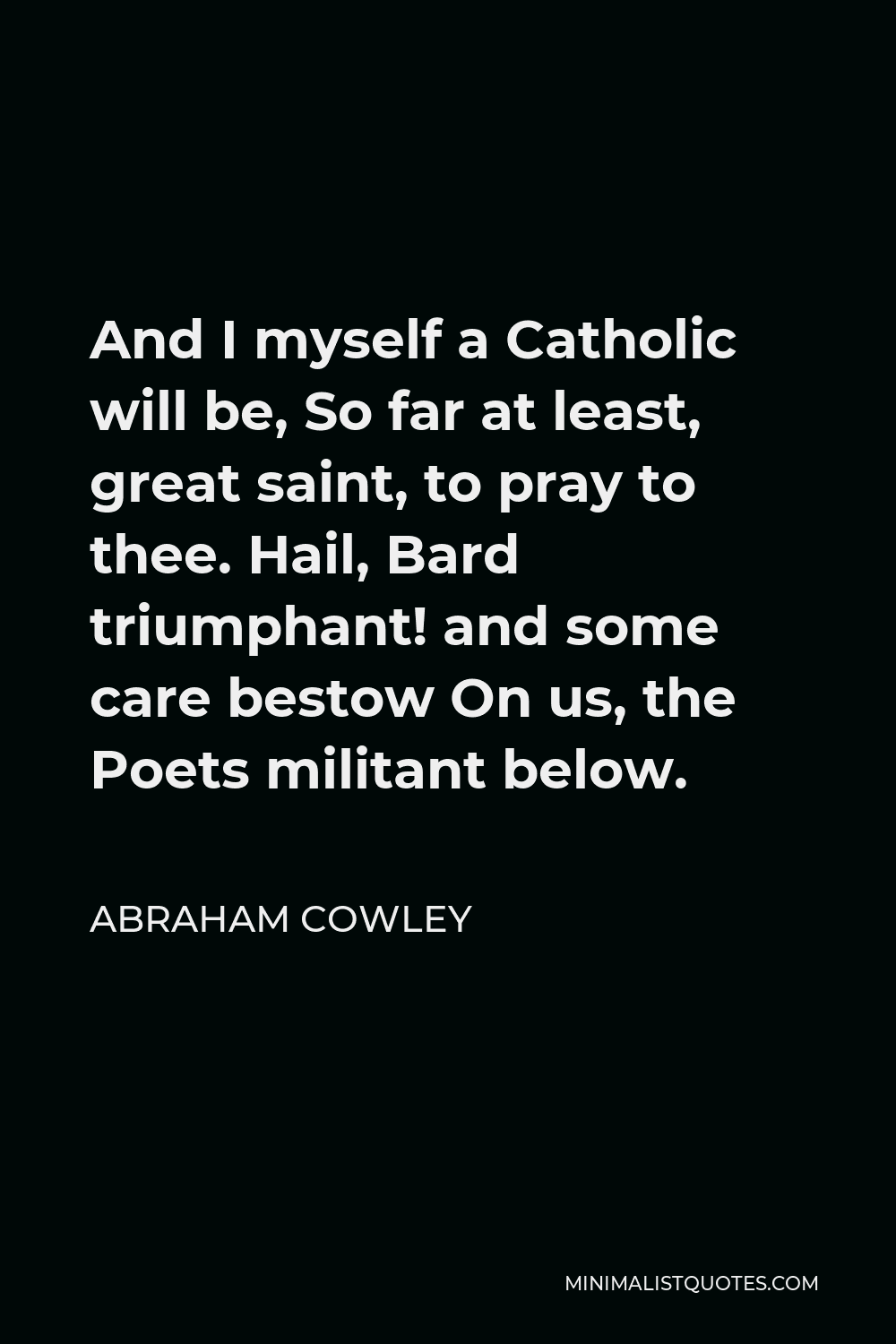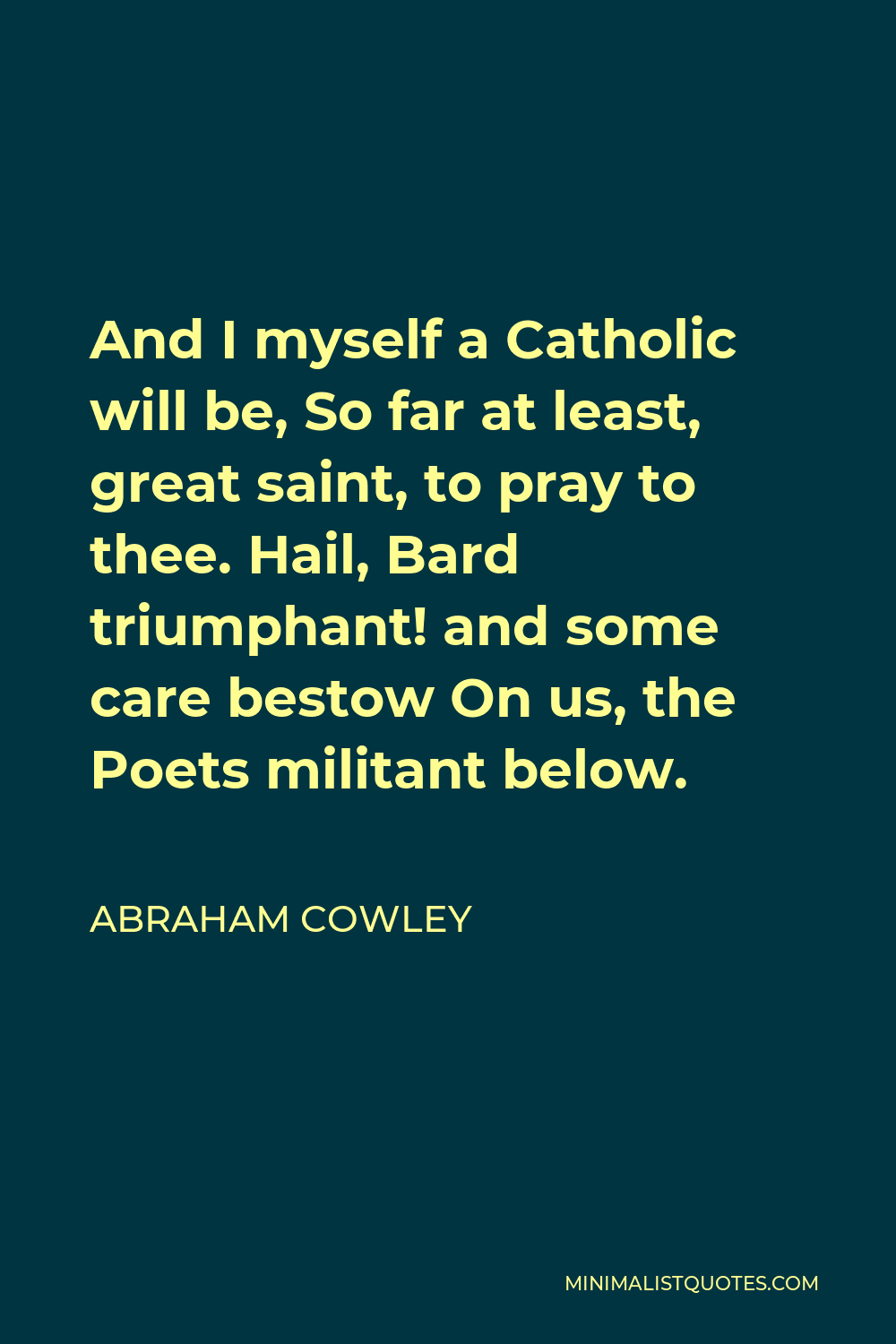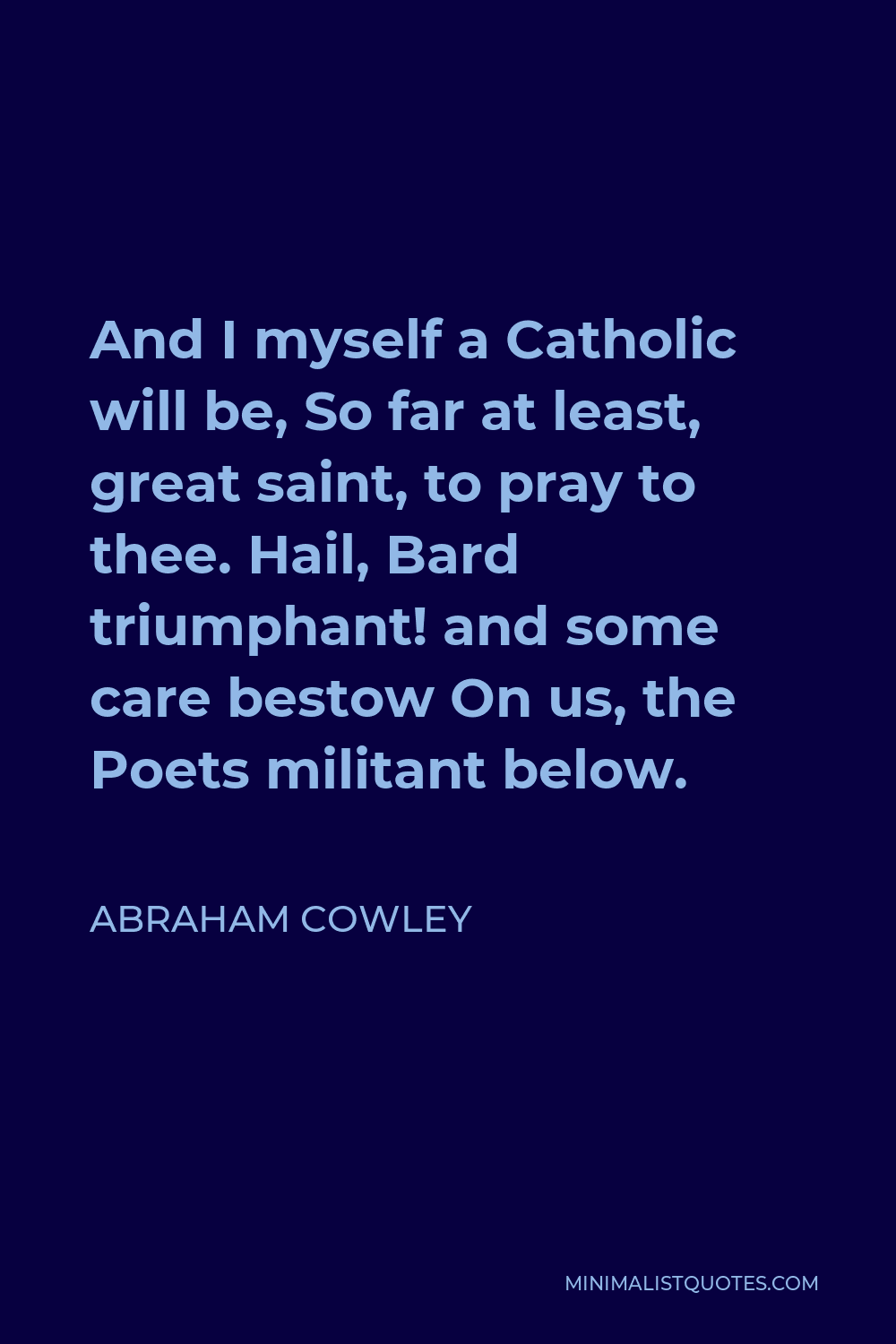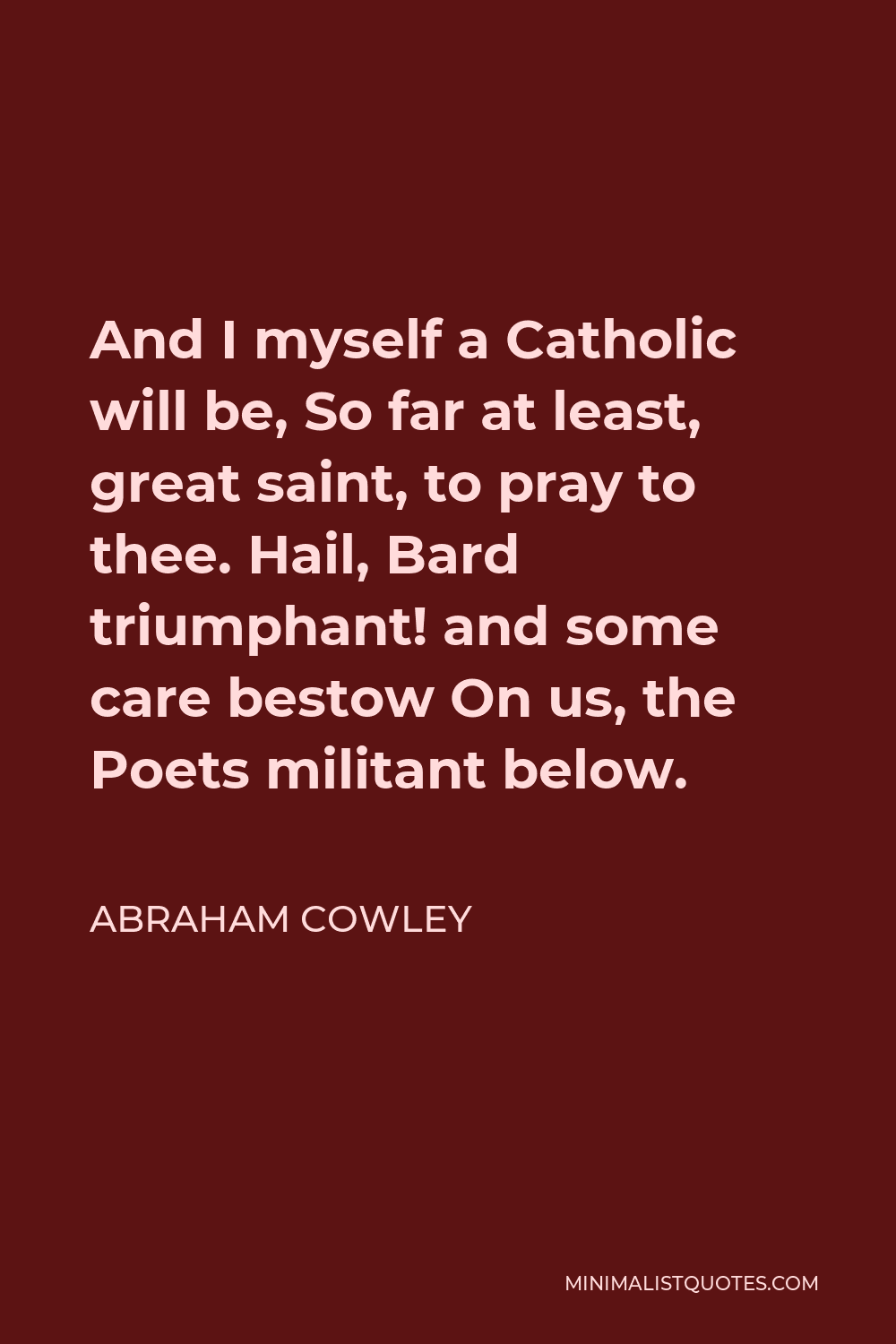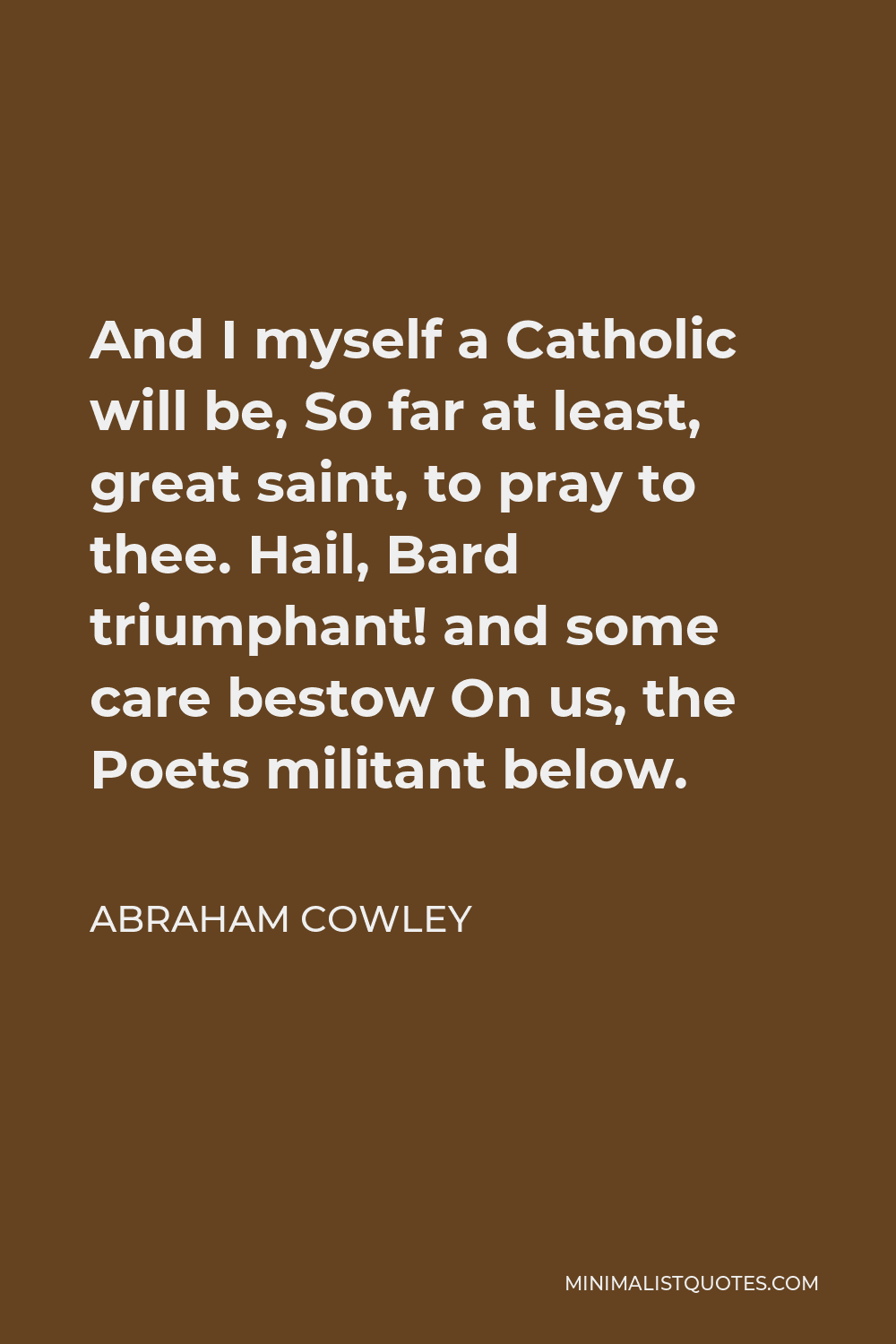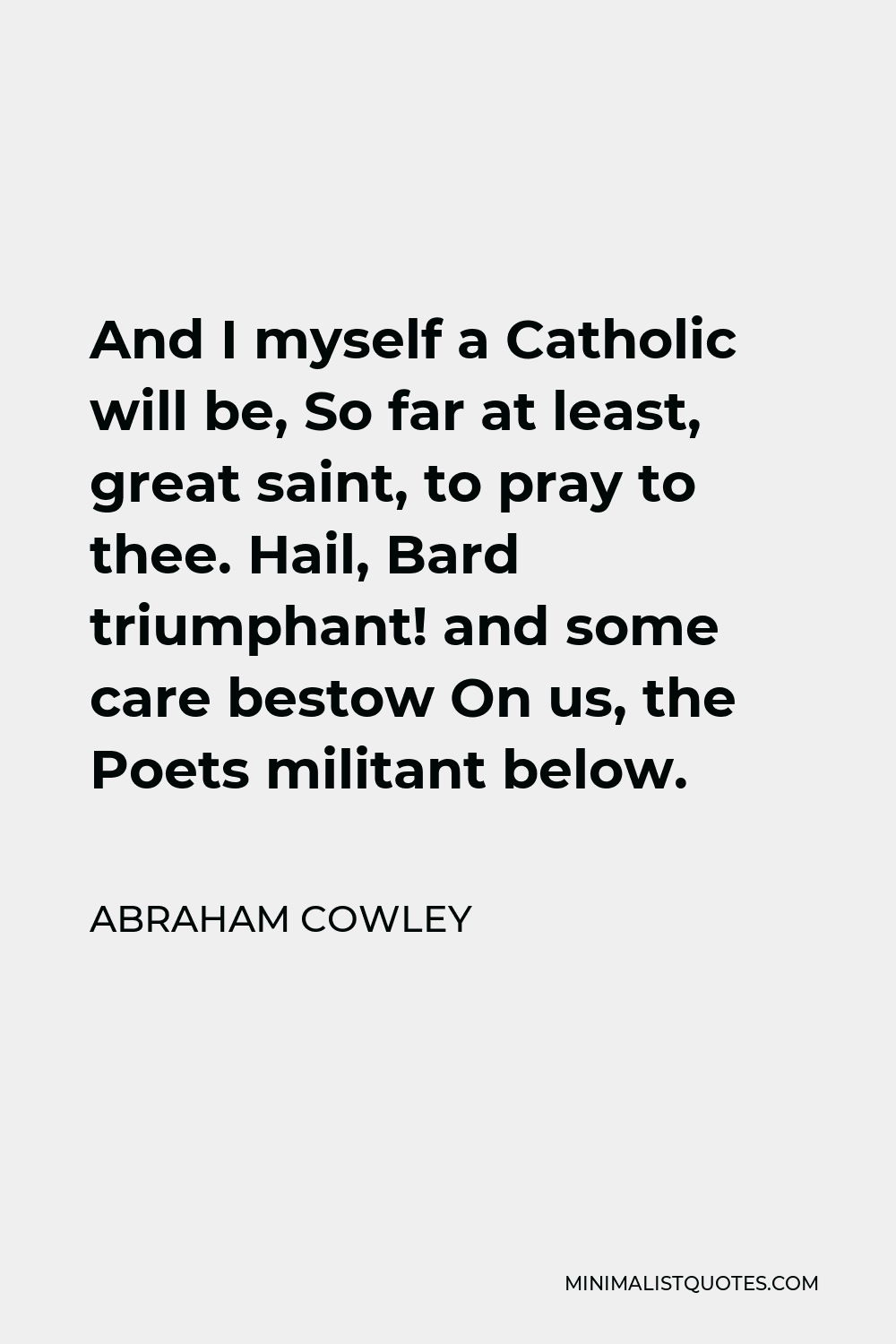Man is too near all kinds of beasts,–a fawning dog, a roaring lion, a thieving fox, a robbing wolf, a dissembling crocodile, a treacherous decoy, and a rapacious vulture.
ABRAHAM COWLEYAnd I myself a Catholic will be, So far at least, great saint, to pray to thee. Hail, Bard triumphant! and some care bestow On us, the Poets militant below.
More Abraham Cowley Quotes
-







-







Come, my best Friends! my Books! and lead me on.
ABRAHAM COWLEY -





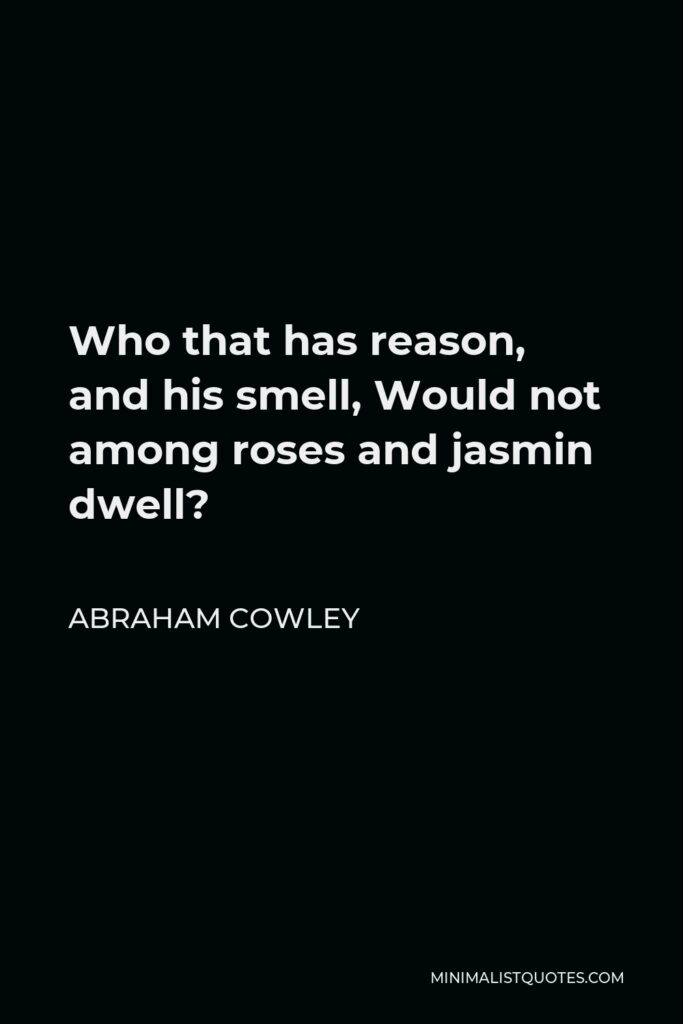

Who that has reason, and his smell, Would not among roses and jasmin dwell?
ABRAHAM COWLEY -





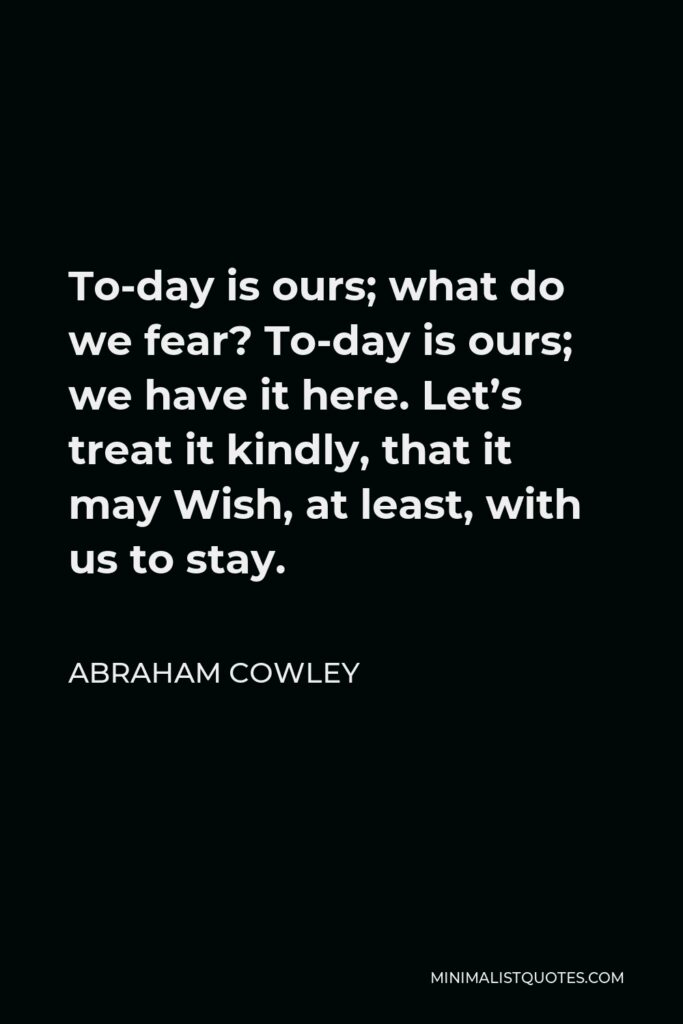

To-day is ours; what do we fear? To-day is ours; we have it here. Let’s treat it kindly, that it may Wish, at least, with us to stay.
ABRAHAM COWLEY -





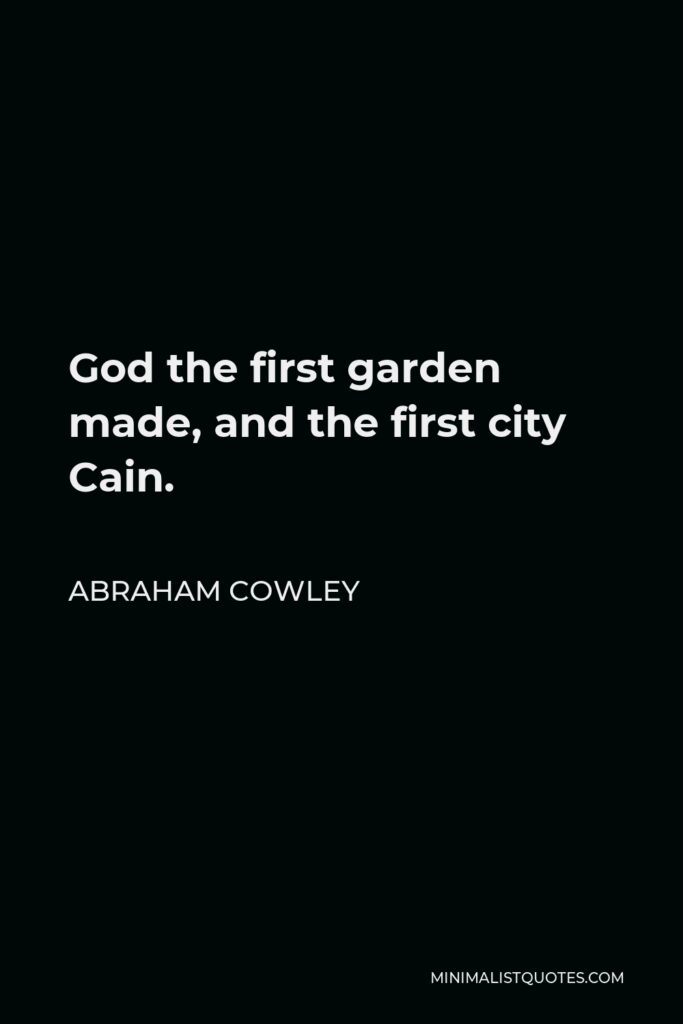

God the first garden made, and the first city Cain.
ABRAHAM COWLEY -





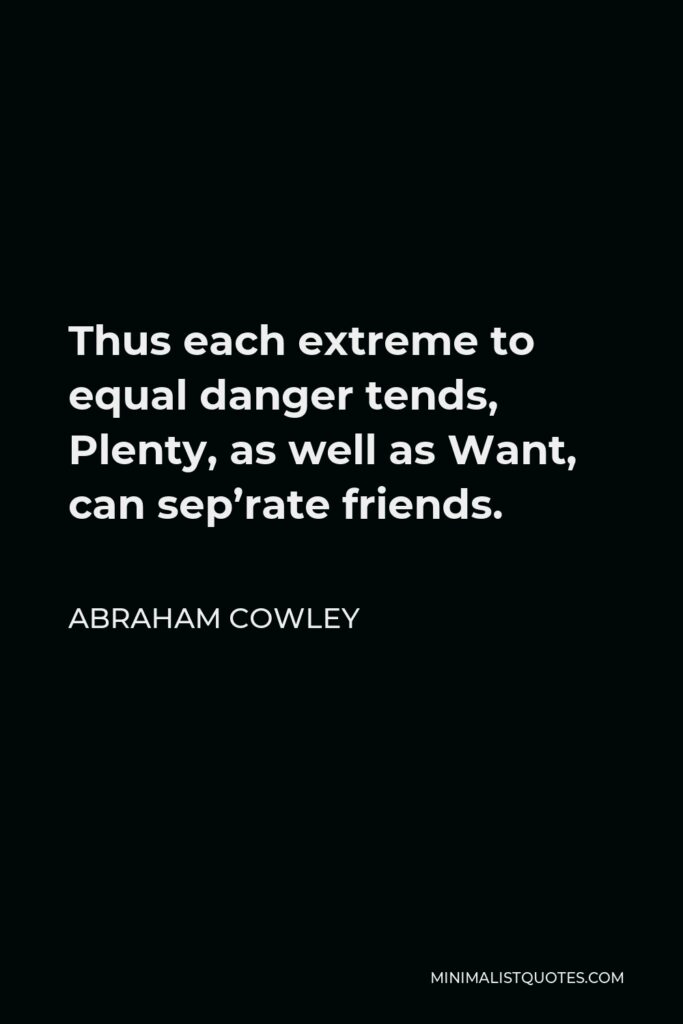

Thus each extreme to equal danger tends, Plenty, as well as Want, can sep’rate friends.
ABRAHAM COWLEY -





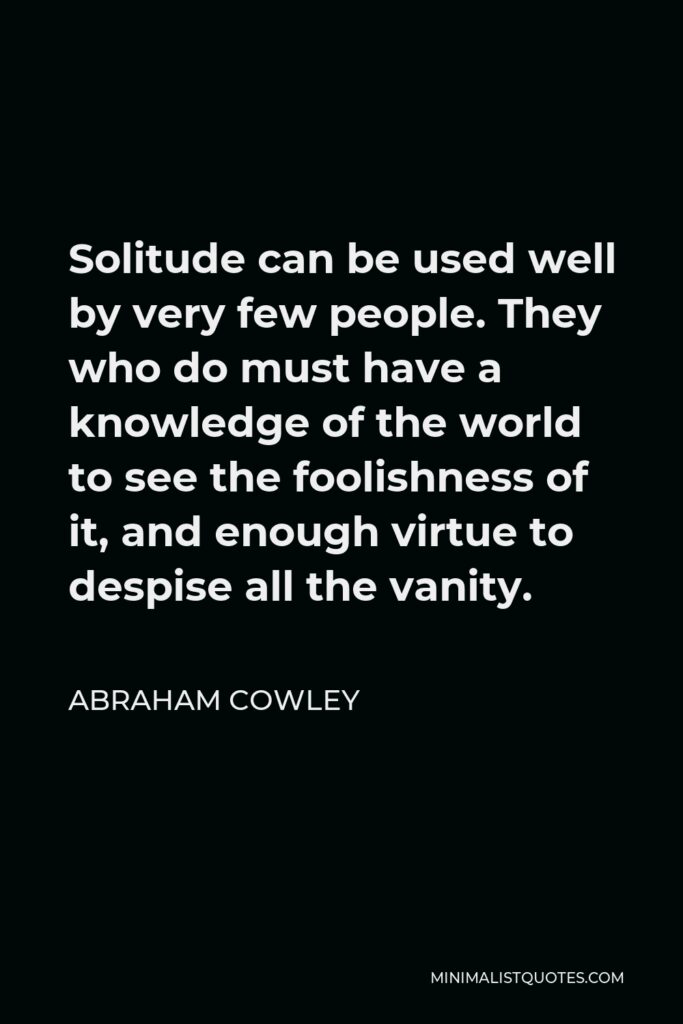

Solitude can be used well by very few people. They who do must have a knowledge of the world to see the foolishness of it, and enough virtue to despise all the vanity.
ABRAHAM COWLEY -







Hope! fortune’s cheating lottery; when for one prize an hundred blanks there be!
ABRAHAM COWLEY -





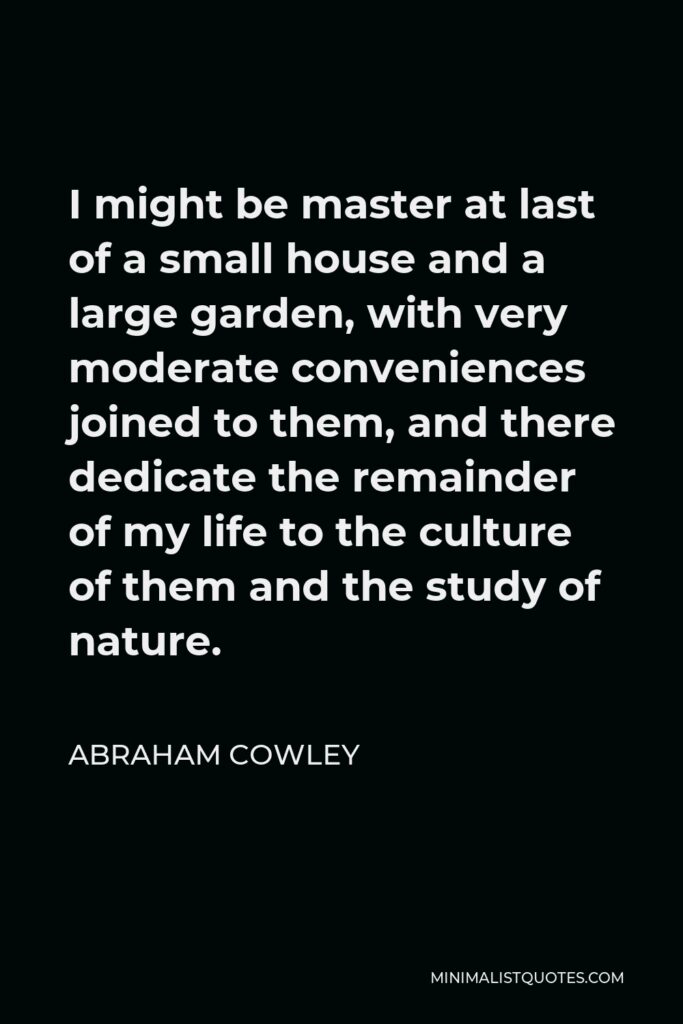

I might be master at last of a small house and a large garden, with very moderate conveniences joined to them, and there dedicate the remainder of my life to the culture of them and the study of nature.
ABRAHAM COWLEY -





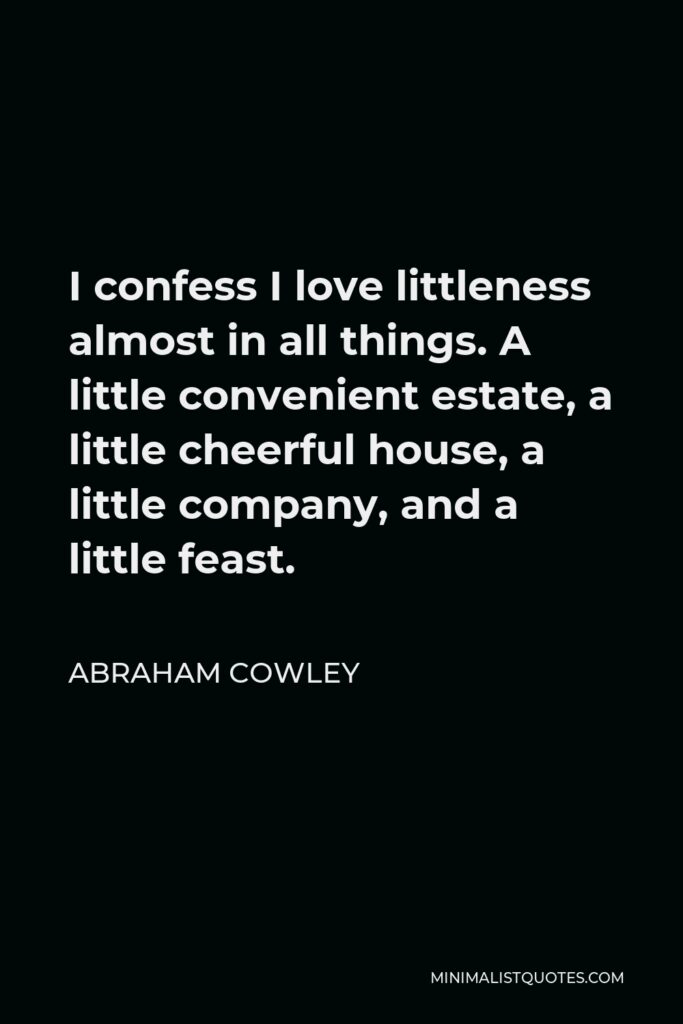

I confess I love littleness almost in all things. A little convenient estate, a little cheerful house, a little company, and a little feast.
ABRAHAM COWLEY -





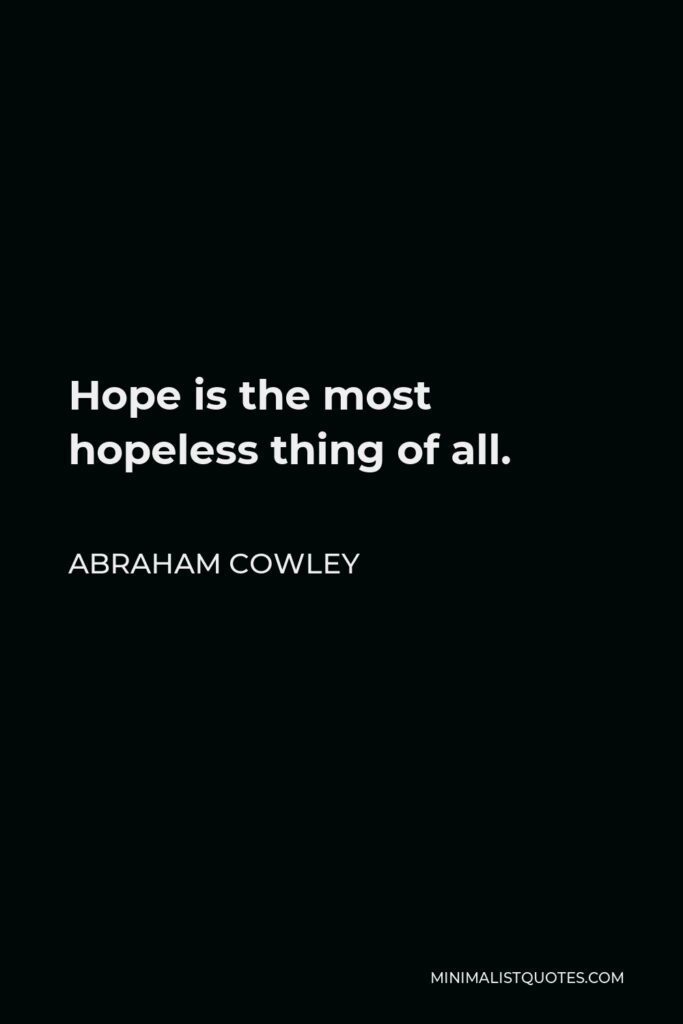

Hope is the most hopeless thing of all.
ABRAHAM COWLEY -





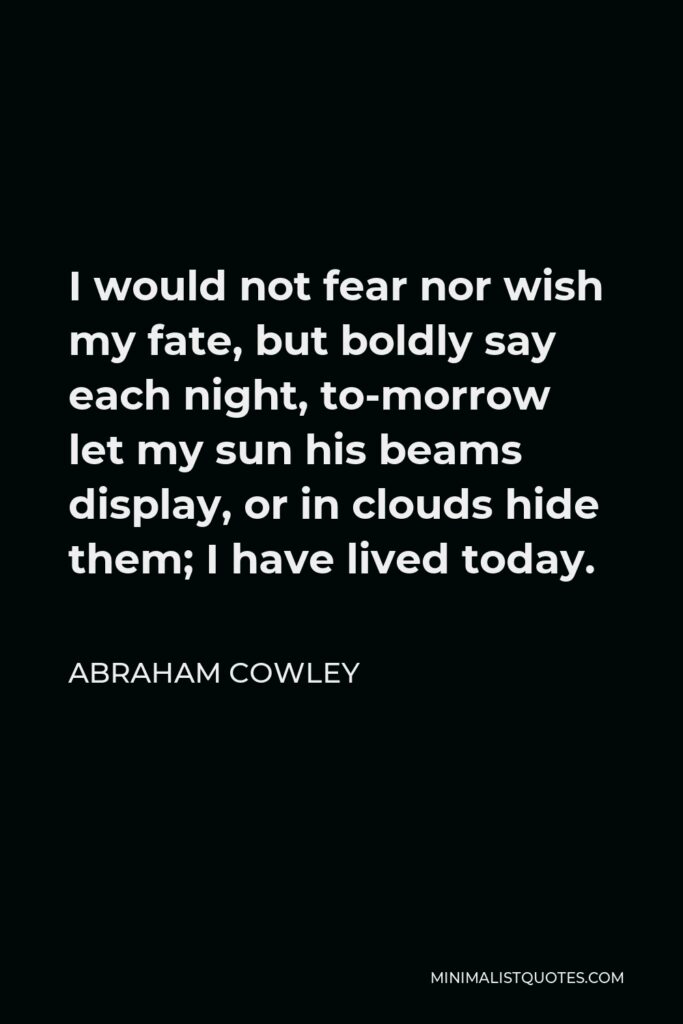

I would not fear nor wish my fate, but boldly say each night, to-morrow let my sun his beams display, or in clouds hide them; I have lived today.
ABRAHAM COWLEY -







Curs’d be that wretch (Death’s factor sure) who brought Dire swords into the peaceful world, and taught Smiths (who before could only make.
ABRAHAM COWLEY -





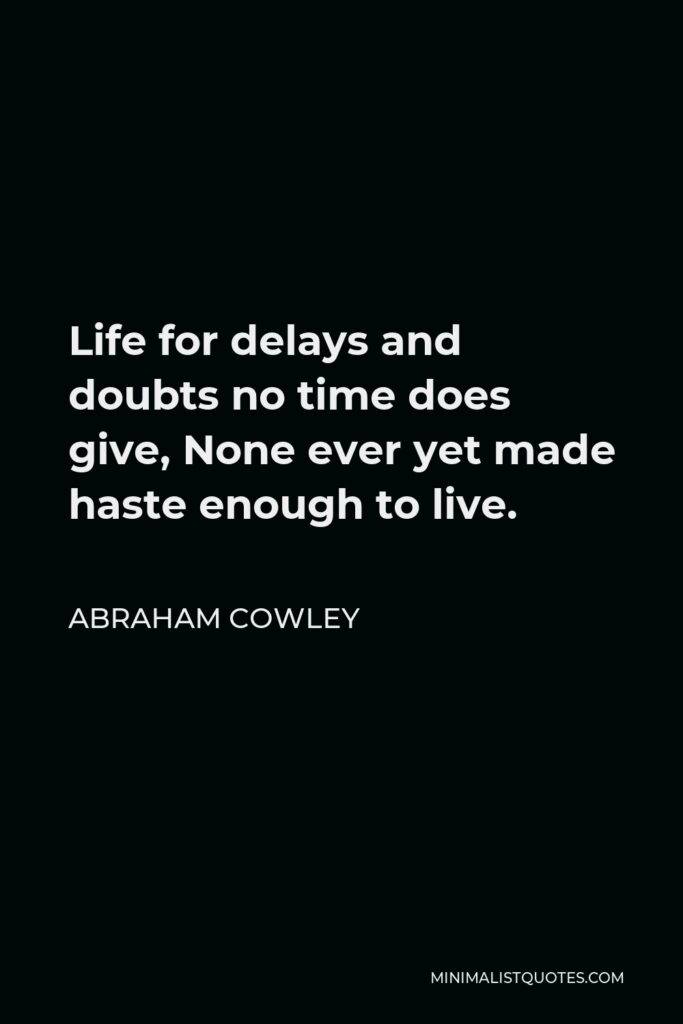

Life for delays and doubts no time does give, None ever yet made haste enough to live.
ABRAHAM COWLEY -





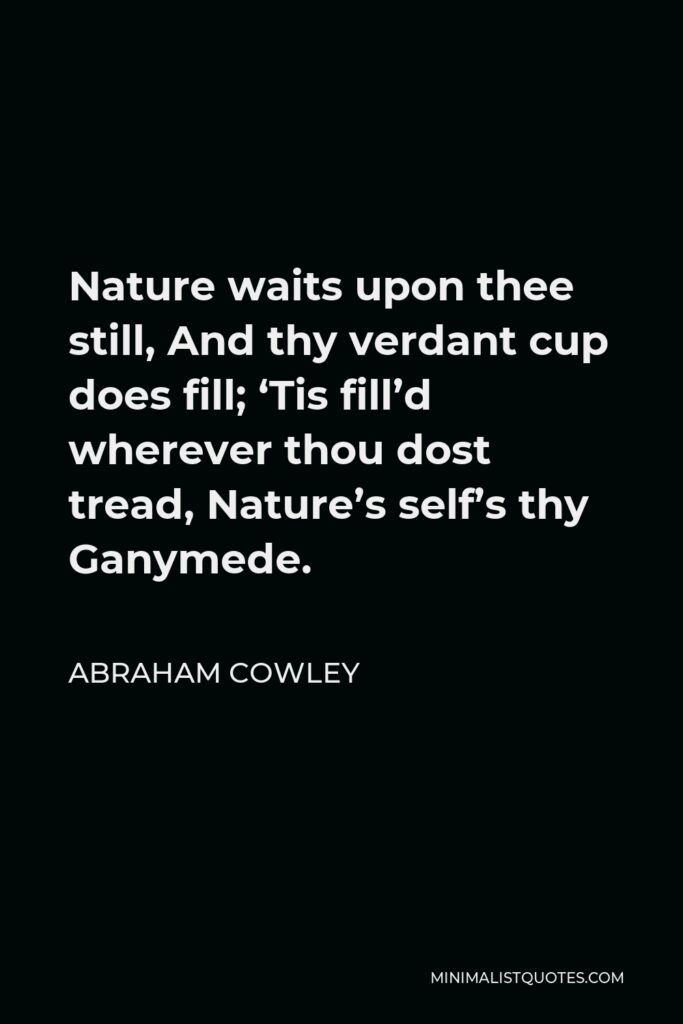

Nature waits upon thee still, And thy verdant cup does fill; ‘Tis fill’d wherever thou dost tread, Nature’s self’s thy Ganymede.
ABRAHAM COWLEY -





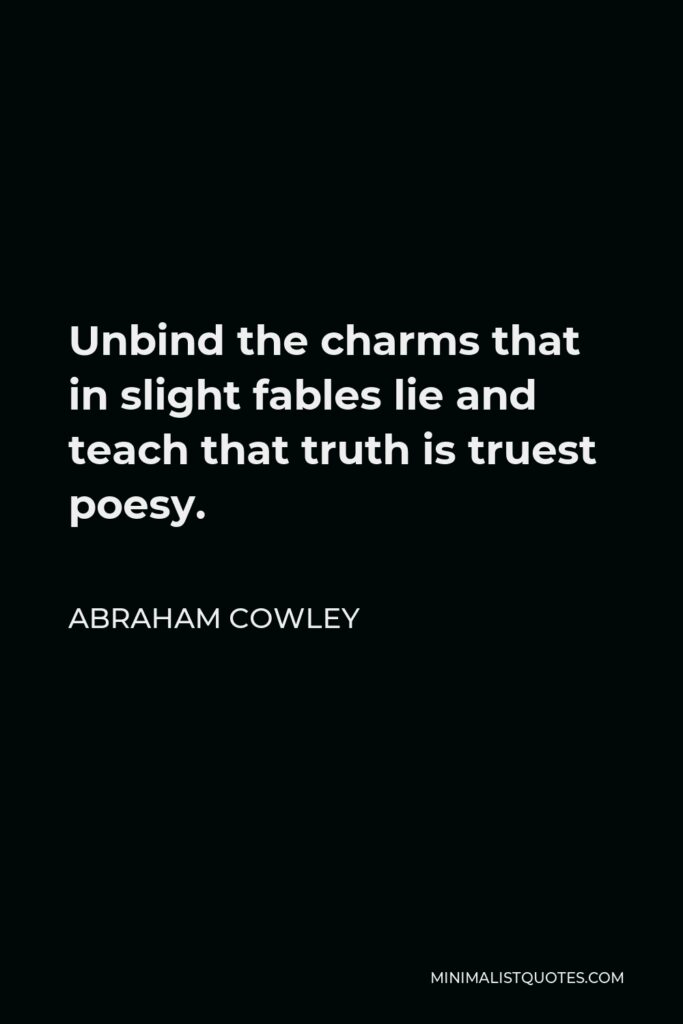

Unbind the charms that in slight fables lie and teach that truth is truest poesy.
ABRAHAM COWLEY
